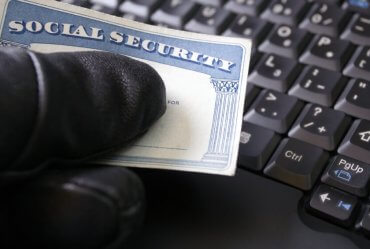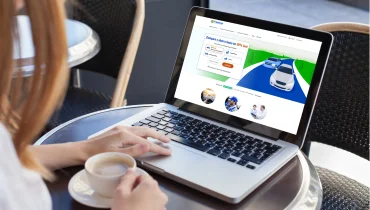
Nowadays, so many people are active on social media sites to connect with friends and family, which pretty much requires posting some personal information. If you have an account on any social network, you should always exercise good judgment about the information that you make available for everyone to see. It may seem harmless, but being active on any social media site puts you at risk of identity theft. The good news is that there are easy ways to minimize your risk of having your personal information stolen by identity thieves.
By far, one of the most popular things to do on social media is to post updates about our fun activities, especially vacations. For example, you’re vacationing in South Rim Grand Canoyn and having the time of your life. It may be tempting to want to share your excitement with all your friends, but perhaps it’s a better idea to wait until you’ve returned home from your Grand Canyon trip. When you post your vacation photos while you are away, an identity thief can easily figure out that your home is unoccupied, making it an easy target for a house robbery. And even when you are home, it is recommended to limit photos of your house, or avoid them altogether. Why? Detailed pictures of your house can be like providing a thief of a map of your house and the valuables you own.
As much as it might be flattering to receive birthday wishes from your contacts on social media – many of whom you probably don’t know very well – it’s worth evaluating if you absolutely need your birthdate for all to see. That type of information is just one of the many details an identity thief needs to complete the profile of their new persona. Other risky information to post includes your current residence, employer and even your school. If you still feel you want to include some of this information, try to limit the amount of detail you post. For example, instead of including the city where you live, consider posting only your state.
Changing passwords every now and then may seem like a hassle, but it will increase your level of security. Many sites suggest that passwords be a complex set of numbers and letters, capitalized or lowercased. Because many people have passwords for several online accounts, it can be overwhelming to have unique passwords for all of them. But there are mobile apps that are useful for keeping track of all your passwords. Or you can just write them down in a notebook.
As for the hundreds of “friends” you have on your social media profile, you should take inventory and ask yourself: are they really close friends or are they people you met once and never talked to again? Every once in a while, make sure to keep tabs on who your friends are. If there are people whom you never speak to, then it may not be necessary to be connected to them. Go one step further and keep your profile account on private. Once other Internet users see that your profile is not open to public view, they will usually stop attempting to see your profile.
These are some of the easiest ways to protect against identity theft in the social media world – and they are worth doing, as they will help your online information more secure. Do you have other tips to help keep identity thieves at bay? Please share in the comments section below.



